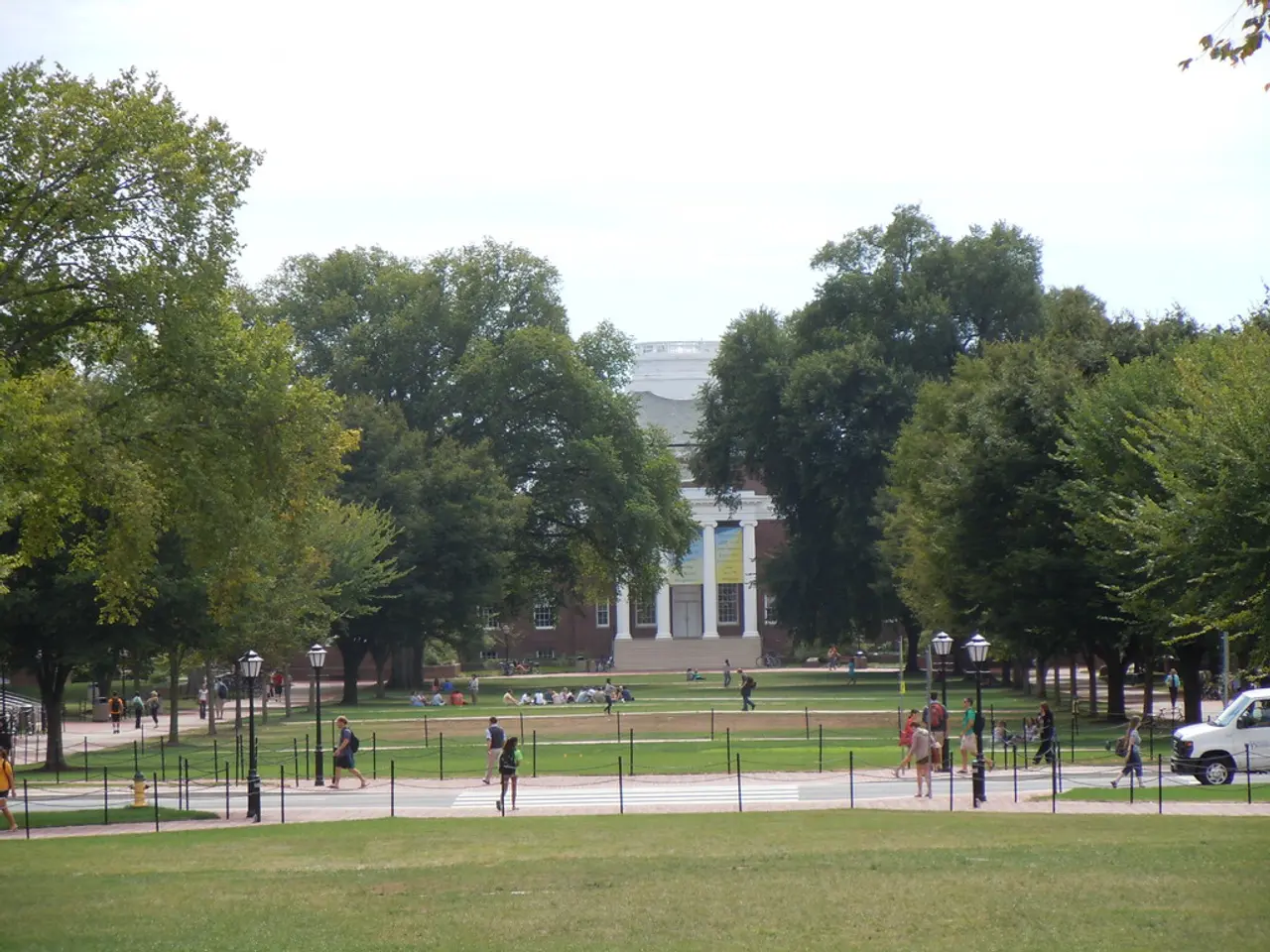Comparing the Challenges in Environmental Systems & Societies (ESS) in the International Baccalaureate (IB) to Those in Other Science-based Subjects.
IB Environmental Systems & Societies (ESS): A Balanced Approach to Science and Society
Environmental Systems & Societies (ESS) stands out as a unique offering within the International Baccalaureate's (IB) Group 4 subjects. Unlike traditional sciences such as Biology, Chemistry, and Physics, ESS takes a more interdisciplinary approach, combining environmental science with societal issues [2][4].
This course, designed to bring together ecological concepts with political, economic, and social perspectives, presents a distinct contrast to the experimental sciences that primarily focus on scientific theories and laboratory work [2][4].
Comparing ESS to other Group 4 sciences reveals some notable differences:
| Aspect | IB ESS | IB Biology/Chemistry/Physics | |----------------------------|-------------------------------------|-----------------------------------------------| | Content Focus | Environmental science + societal analysis | Pure scientific disciplines focused on biological, chemical, or physical principles | | Scientific Rigor | Less mathematically or experimentally intense | Greater emphasis on complexity, detailed maths, and extensive labs | | Internal Assessment (IA)| Investigations often incorporate fieldwork and socio-environmental factors | Lab-based experiments with controlled variables | | Group 4 Project | Collaborative, interdisciplinary project involving ESS and other sciences| Same collaborative interdisciplinary investigation involving all Group 4 subjects | | Difficulty Level | Considered more accessible for students less confident in heavy science | Higher difficulty, requiring strong analytical and problem-solving skills, especially HL |
ESS, while fulfilling the Group 4 science requirement for the IB Diploma, caters to students seeking a balance between science and societal concerns without the intense mathematical and theoretical depth typical of Biology, Chemistry, or Physics [2][4]. This makes it an attractive option for those interested in environmental issues with a broader social lens and who want a science subject that includes research, data analysis, as well as critical thinking about human impacts and sustainability [2][4].
Moreover, ESS demands strong critical thinking and writing skills, with students required to complete essays, fieldwork-based internal assessments, and case analyses. The course typically requires around 2-3 hours of independent study per week, making it a more manageable option for students compared to the 4-6 hours per week demanded by Standard Level Biology, Chemistry, and Physics, which can increase to 6-8 hours as exams approach [1].
In contrast to traditional sciences, ESS does not require controlled experiments for internal assessments, and its focus on systems thinking, policy, and environmental case studies with minimal equations makes it less technical and math-intensive [3]. However, it's important to note that ESS may not meet prerequisites for STEM degrees [1].
For students who prefer a more interdisciplinary approach and less mathematical rigor, ESS could be a strong fit. It offers a compelling blend of natural sciences with social science perspectives, making it less technically rigorous compared to other sciences but especially significant for students keen on environmental and societal issues.
[1] IB Diploma Programme: Course Guide for Environmental Systems and Societies (2021-2022) [2] IB Diploma Programme: Environmental Systems and Societies (2021-2022) [3] IB Diploma Programme: Environmental Systems and Societies: Internal Assessment Guide (2021-2022) [4] IB Diploma Programme: Environmental Systems and Societies: Course Description (2021-2022)
- Pursuing a balanced understanding of science and society, students interested in exploring environmental issues from a broader social perspective might find the online education in Environmental Systems & Societies (ESS) an ideal choice for learning, especially as it incorporates research, data analysis, and critical thinking about human impacts and sustainability.
- One of the key aspects that sets ESS apart from other education and self-development options, such as online courses in traditional sciences like Biology, Chemistry, or Physics, is that it caters to those who seek a science subject that offers fewer mathematical requirements and a more manageable workload, while still focusing on understanding the intricate connections between the environment and society.




